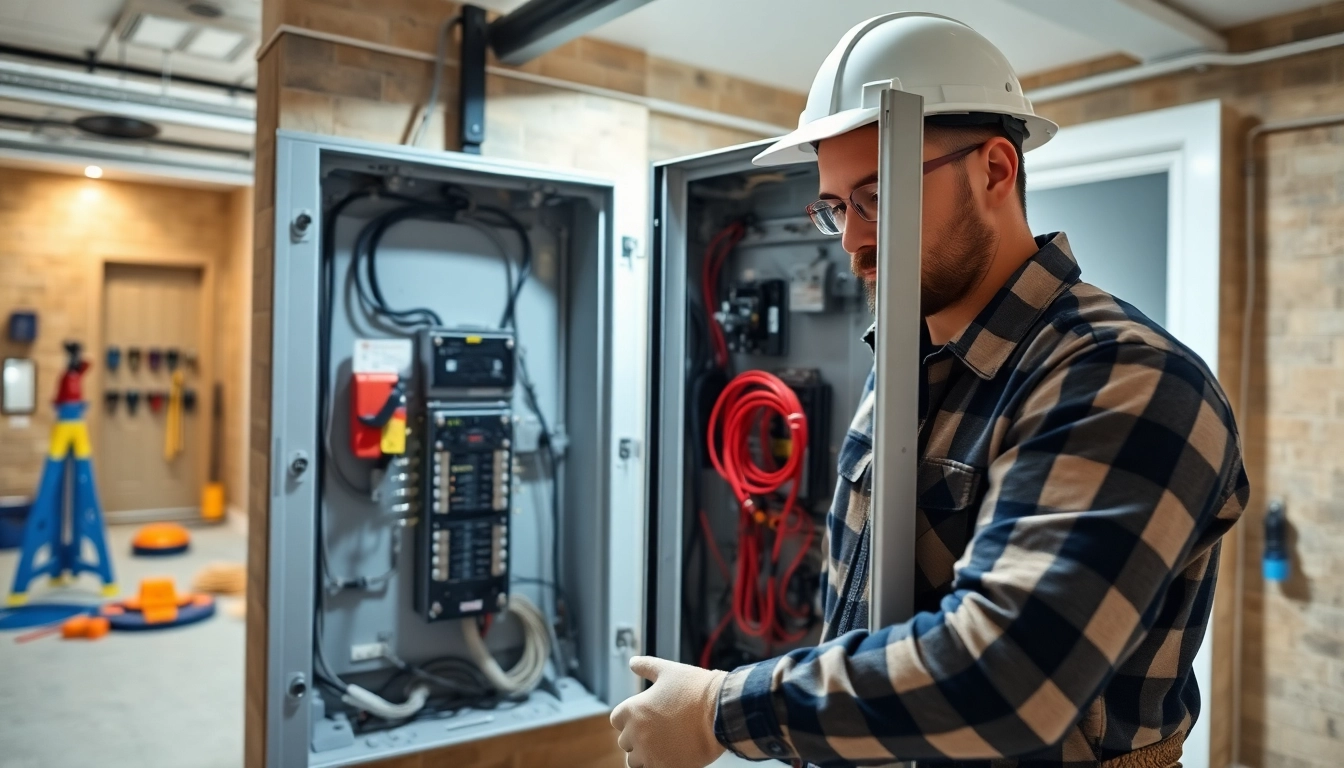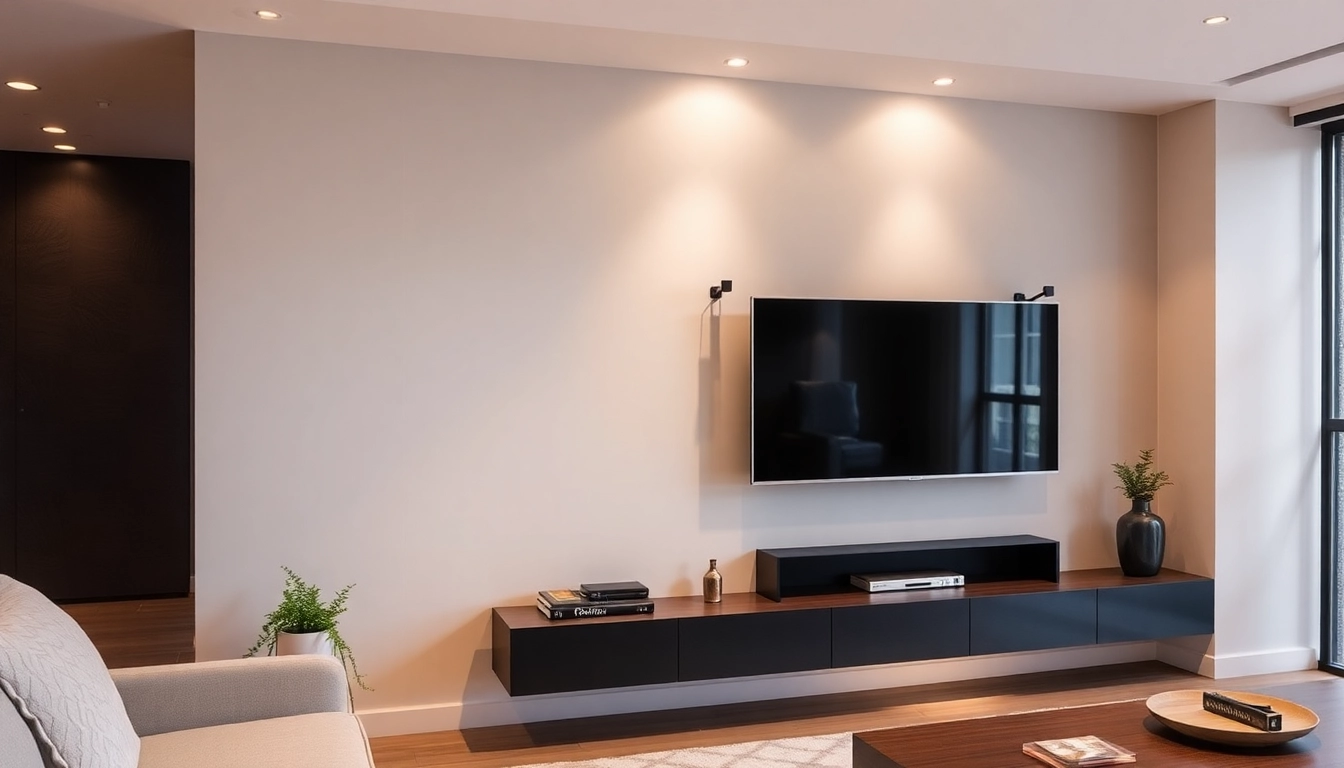Understanding the Reasons for an Electrical Panel Upgrade
Upgrading an electrical panel is a significant decision that can impact the safety and efficiency of your home. Many homeowners ponder the Electrical Panel Upgrade topic when considering renovations, additions, or even when faced with the discomfort of persistent electrical issues. Understanding the need for such an upgrade is essential for not only maintaining safety but also improving functionality within your electrical system.
1.1 Increased Appliance Demand
With the rise in technology usage, most households today utilize multiple high-power appliances simultaneously, including refrigerators, washers, dryers, and home entertainment systems. This increased demand on your electrical system can strain an outdated panel that may not have been designed to accommodate the electrical load of modern households.
In many cases, homes built decades ago may only support 100 amps, while modern homes often require a minimum of 200 amps. An upgraded electrical panel ensures that your home can manage the load needed for all appliances without risking overloads, which can lead to frequent circuit trips and potential hazards.
1.2 Home Renovations and Additions
Renovating your home or adding new rooms is an exciting venture, but it can necessitate an electrical panel upgrade. Any expansion that increases your electrical load requires a panel that can handle the inflow of electricity. Failure to upgrade the electrical panel during renovations can lead to insufficient power supply, resulting in circuit failures and possible damage to devices.
For instance, if a homeowner decides to finish a basement or add a home office, the additional outlets and lighting would require that the electrical panel is capable of supporting this extra load. A thorough assessment by a qualified electrician can help determine the specific needs before the renovation begins.
1.3 Safety and Code Compliance
Older electrical panels can pose serious safety risks. Over time, wear and tear, outdated technology, or general obsolescence can lead to electrical fires, electrocutions, and other hazards. Upgrading your electrical panel can significantly improve home safety, ensuring that all wiring is up to current regulations and codes.
Furthermore, local building codes are routinely updated, and an upgrade can ensure compliance with the latest standards. Depending on the jurisdiction, failure to meet these codes can lead to penalties or issues when selling the home. Therefore, upgrading not only improves safety but can also facilitate smoother property transactions in the future.
Signs You Need an Electrical Panel Upgrade
Identifying the need for an electrical panel upgrade can save homeowners time, money, and potential safety hazards. Here are some signs that may indicate it’s time for an upgrade.
2.1 Frequent Circuit Breaker Trips
If you find yourself constantly resetting circuit breakers, it can be a clear indication that your electrical panel is overloaded. Breakers are designed to protect homes from electrical fires by interrupting current flow when the system is overloaded. Frequent tripping indicates that your current panel may not be able to handle the load and should be assessed for incompatibilities or necessary upgrades.
2.2 Flickering Lights
Flickering lights are not just an annoyance; they can signify serious electrical problems. If lights flicker when appliances start up, it may indicate that the electrical panel cannot provide adequate power. In severe cases, flickering lights can be a precursor to larger electrical issues, including the risk of fire. Homeowners should take this as a warning and consider an upgrade to remove any underlying risks to both property and safety.
2.3 Old Panel Types and Their Limitations
Older homes often feature outdated electrical panels, such as Federal Pacific or Zinsco panels, which are widely considered unsafe due to their inability to handle modern electrical loads. Many of these older models may not have the same protective features or reliability as newer technology. If you live in an older home and have identified your panel type as one of these, it is imperative to consider an upgrade for both safety and operational efficiency.
Cost Factors Involved in Electrical Panel Upgrades
The cost of upgrading an electrical panel can vary widely based on numerous factors. Being informed about these elements can help homeowners budget more accurately and prepare for any surprises during the process.
3.1 Labor Costs and Project Scope
On average, labor costs for electrical work range from $50 to $120 per hour. The total labor cost will largely depend on the complexity of the job. A straightforward upgrade may be completed in a few hours, whereas more extensive tasks involving new builds or retrofitting can take much longer. Homeowners should additionally account for the scope of work necessary for the upgrade, such as rewiring and installing new circuits.
3.2 Types of Panels and Materials
The type of electrical panel selected for the upgrade also influences costs. Basic panels may range from $100 to $500, while higher amperage or specialized panels designed for specific configurations or energy-efficient systems can significantly increase costs. The breaking down of expenses in an itemized quote can help demystify why a particular panel may be more expensive than others and aid in making an informed selection.
3.3 Hidden Costs to Anticipate
During an upgrade, homeowners should be aware of potential hidden costs. This could include permits, additional wiring, and electrical sub-panel installations. It is essential to allocate a contingency in the budget to cover any unexpected expenses that may arise once the electrician begins work. Homeowners should communicate thoroughly with their service providers to obtain a clear understanding of additional potential costs before work begins.
Choosing the Right Professional for Your Electrical Panel Upgrade
Finding the right professional is crucial for ensuring a safe and successful electrical panel upgrade. There are several qualities you should look for when selecting a contractor.
4.1 Certifications and Experience
First and foremost, verify the credentials of potential electricians. They should be licensed, insured, and experienced in performing electrical panel upgrades. A contractor with a proven track record will have the necessary expertise to handle the realities of the job and will adhere to all safety codes and regulations.
4.2 Comparing Quotes and Services
Obtain multiple quotes from different professionals to gauge the average cost of the upgrade. This will allow you to compare services offered and ensure that the selected contractor provides comprehensive coverage for the necessary work. Look for quotes that itemize all aspects of the job to avoid any ambiguity regarding costs.
4.3 Importance of Insurance and Warranties
Ensure that the electrician carries proper liability insurance to protect you from financial matters related to accidents or damages during work. Additionally, inquire about warranties or guarantees on the work performed. A reliable contractor will stand behind their service, giving you peace of mind in your investment.
Benefits of Upgrading Your Home’s Electrical Panel
While the costs and time associated with upgrading an electrical panel may seem daunting, the long-term benefits are substantial. Here are some compelling reasons to make the change.
5.1 Enhanced Home Safety
A major benefit of an upgraded electrical panel is improved home safety. A modern panel will have more advanced protective features, minimizing the risk of electrical fires, shocks, and other hazards. By eliminating outdated technology, homeowners can enjoy peace of mind knowing that their electrical systems operate safely and efficiently.
5.2 Improved Energy Efficiency
New electrical panels are designed to be energy-efficient, which means you can save money on energy bills over time while being more environmentally friendly. Modern systems better manage power flow, reducing the waste associated with older models and allowing homeowners to enjoy the benefits of more reliable electrical performance.
5.3 Increased Property Value
Upgrading your electrical panel can enhance your home’s value. In real estate, potential buyers place significant importance on the electrical system’s reliability. A home with an upgraded panel can attract more buyers and secure better selling prices. Moreover, showcasing an up-to-date electrical system signals that the home has been well maintained overall.



